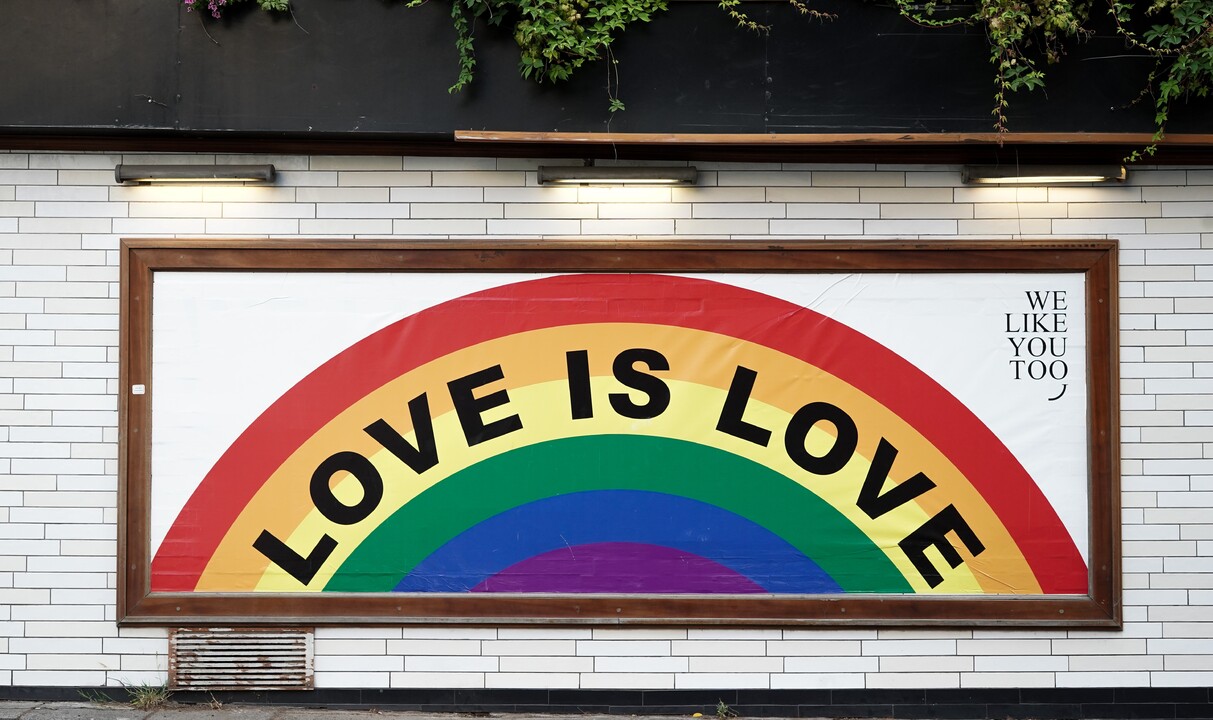Pride during a pandemic, and beyond

by JAMES YATES | Published on June 15, 2021
It’s the time of year again, where we celebrate the progress made in the fight for LGBTQ+ equality, and protest for those who still have a way to come. Across the world, June is marked as Pride Month, in the wake of the Stonewall Riots that started on 28th June 1969 in response to the police brutality against the queer community at the Stonewall Inn in New York City. In any other year, this would involve parades, protests and parties. New friends made and old friends reunited. However, this hasn’t been any other year.
The pandemic and the subsequent lockdown measures globally have been difficult for everyone, but particularly for minorities that survive on community and togetherness. Pride events last year were cancelled. Those who were part of the community had to resort to meeting virtually (not another Zoom party!) and those who may be exploring their LGBTQ+ identity for the first time and still hadn’t discovered their community were left in isolation.
As much as we can joke about how quickly the novelty of virtual meetings wore off, credit is due to those who pivoted to create virtual Pride events, allowing a community to somewhat come together when kept apart, and work to provide income and resources for those in our hospitality, entertainment and charity sectors who were struggling to get by.
This year, whilst we’re still not out of the woods, there is light through the trees. There are large scale Pride events planned for later in the year and current lockdown restrictions allow for some version of normality for queer venues and LGBTQ+ performers to get back to work.
I think this last year has taught everyone the power and importance for community. In supporting and protecting each other, we are supporting and protecting ourselves, something that can be said for wearing a mask or fighting for the rights of the marginalised. No minority exists in a vacuum, something that the LGBTQ+ community were reminded of by the Black Lives Matter movement. If a black gay person is discriminated for being too black for the gay community and too gay for the black community, where on earth should they feel their right to belong? The fight against homophobia, biphobia and transphobia goes hand in hand with the fight against racism, sexism, xenophobia and ableism. Recognising intersectionality and how we are only as liberated as the most discriminated in our community is more important than ever.
In law, currently 69 countries criminalise homosexuality in one way or another (many of these laws were introduced by former Western colonial rule such as the British Empire). Outside of the law, LGBTQ+ people are regularly attacked or killed, such as 20 year old Alireza Fazeli Monfared, who was beheaded by members of his own family on 4th May in Iran, for identifying as gay. The situation is just as harrowing for the transgender community. In a report by LGBTQ+ anti-violence charity Galop, 4 in 5 respondents had experienced a form of transphobic hate crime.
Despite how bleak things may sound, progress is being made, and can only be made with allies in our corner – true allies. I hate to break it to you but gone are the days where brands and corporations can dust off the rainbow version of their logo and call it allyship. Whilst I’m proud of the rainbow flag and the meaningful history it represents, it has become so watered down and generic that people and companies can throw up a rainbow and claim to be supporters, without actually supporting the community in addressing the issues that the flag represents.
If you’re a brand with a rainbow logo for June, or doing a Pride campaign, pay up. Donate to LGBTQ+ charities. Hire queer people in all stages of producing your campaign and pay them fairly. Speak to real queer people and use your money and platform to address the real queer issues they face. Go beyond a generic rainbow logo that says nothing and challenges no one.
And it doesn’t stop on the 1st July. Celebrate Pride and LGBTQ+ people all year round. That doesn’t mean you need to constantly wave a Pride flag (even queer people don’t want that), but make diversity and inclusion your core mission. Establish a trans and queer friendly recruitment process and close the trans and queer pay gap. Enforce zero-tolerance anti-harassment and anti-discrimination policies. Create effective diversity and inclusion training and make it mandatory for everyone. And on a personal level, listen to your trans and queer colleagues and understand how best to support them succeed in their roles and bring value to your companies. Empower them, because it will enrich your workplaces, on a culture level and a business level.
If as a result of this pandemic, we can use our renewed sense of community and unity to achieve this, then that’s something I can definitely clap for outside my house on a Thursday night.
